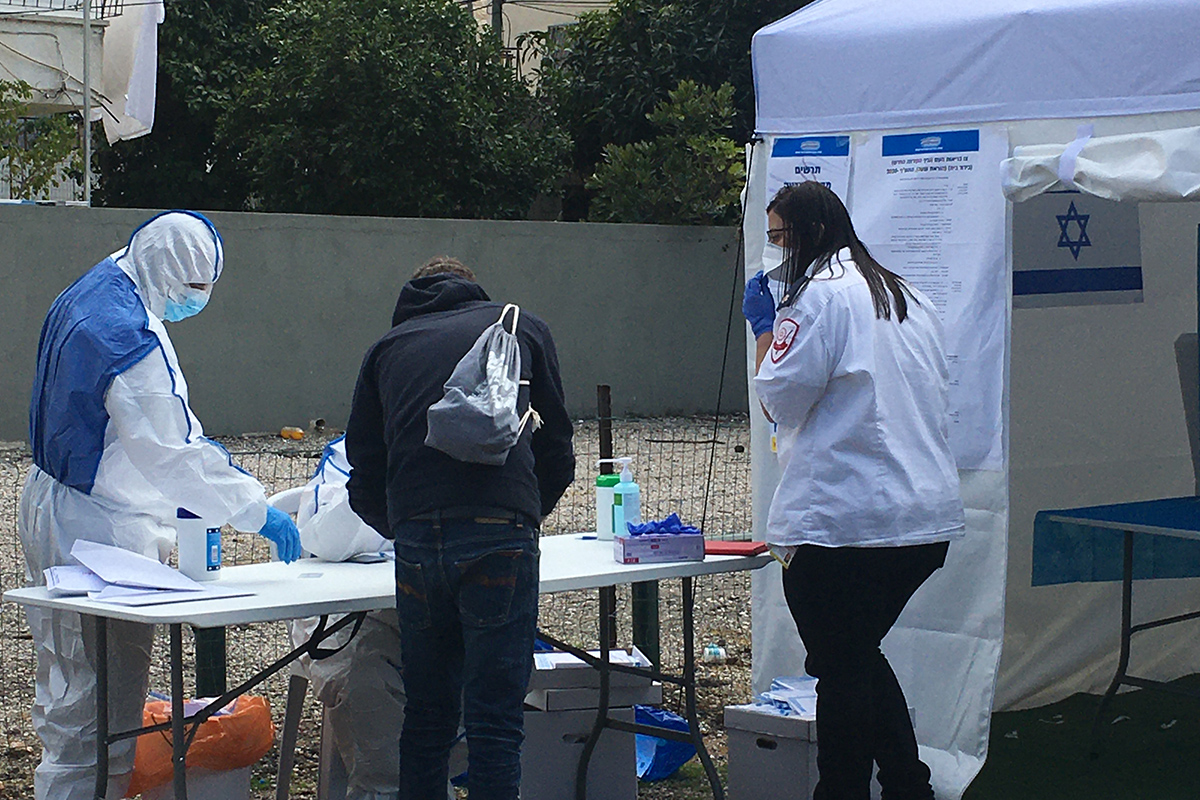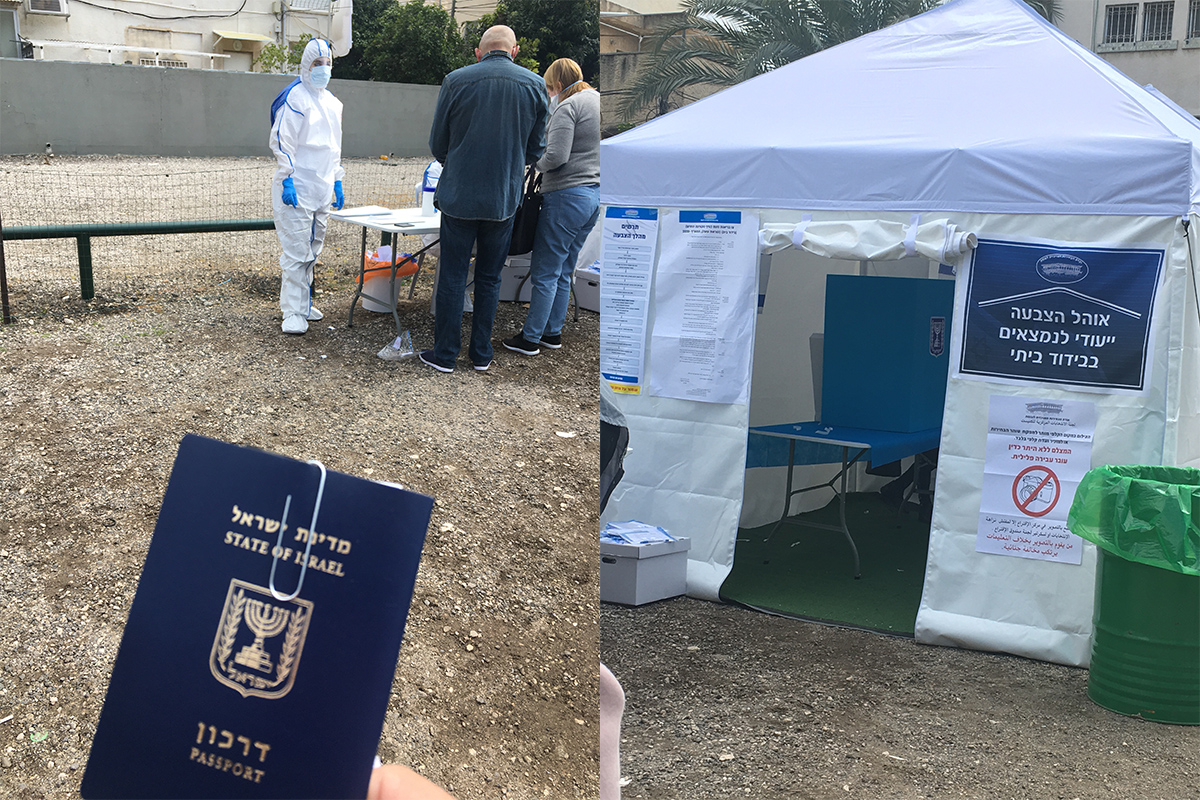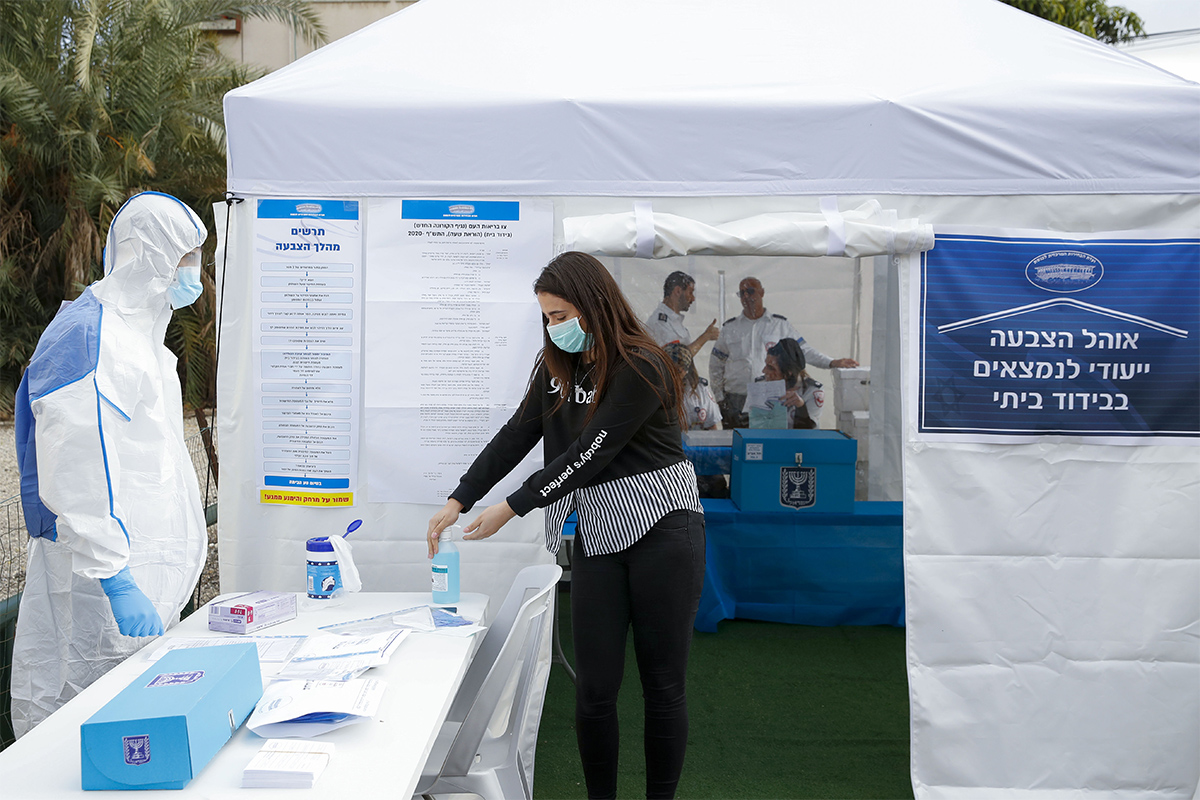Over the past few semesters, I’ve had a lot of friends study abroad and return reporting, with some degree of comedy and some degree of seriousness, that abroad “changed” them. They’ve shared stories about picnics in front of the Eiffel Tower and selfies at the John Lennon Wall. They’ve reflected emotionally on the bonds they’ve forged with locals and sometimes, annoyingly, pretended they’ve forgotten their English.
These stories were always funny to me, despite the dramatics, because I knew I would probably come back from my time studying abroad guilty of the same sort of clichés. But the thing is, I never thought I would come back telling my friends, “Oh yeah, this one time I was in a government-mandated quarantine because of an international pandemic and also voted in Israeli elections for the first time whilst this quarantine was still in effect.”
But it’s true, I feel changed.
This semester I’m studying abroad at Tel Aviv University, and as many students studying abroad tend to do, I decided to take a little trip to Italy. I ate obscene amounts of pasta and said “ciao bambina” both incorrectly and annoyingly often. It was all fun and games until I returned to Israel amidst (reasonable) panic surrounding coronavirus. At the end of that week, four days before Israel’s third election, I was moved to a quarantined apartment of girls who had also traveled to Italy in the past 14 days. Because we had been back in the country for four days at this point, the Ministry of Health confirmed we would remain in quarantine for 10 days.
At the beginning, I had a lot of questions, most of which did not pertain to the Israeli democratic system. How were we going to get food? Was quarantine Stockholm Syndrome a thing and was I going to develop it? Was it unethical to do an ab workout on our balcony? However, once some of my more immediate concerns were addressed, it occurred to me that I might not be able to go out and vote in elections for the 23rd Knesset.
It’s not that I had been 100% sure I was voting all along. Before the trip to Italy and before the quarantine, I was indecisive on whether it was my place to vote at all. I think it’s a feeling that a lot of Israeli-Americans feel: being too American to be Israeli and too Israeli to be American, kind of floating somewhere in the middle of the two at any given time. My grandparents in Rishon Lezion had indirectly told me that it was not my place to vote unless I was planning on making aliyah. Meanwhile, some of my relatives, Israeli expats living in Budapest, argued that it wasn’t just an option for me to vote but a privilege I should take advantage of. It seemed like every Israeli family member had an opinion, for better or for worse. So as Election Day approached, I found myself unsure of what my move would be — and when I was quarantined, it appeared that I wouldn’t be voting by default.
But then, the night before the election, I got a notification on my phone about special polling stations for the quarantined. I had been joking all along that coronavirus was a form of voter suppression and now there was an opportunity to get out and vote right in front of me. I decided to jump on it. The next morning I put on a surgical mask, avoided public transportation as instructed, and nervously walked to the polls.
It was an interesting social experiment, watching people see me on the streets and then immediately move to the other side of the sidewalk. One man explicitly asked me why I was out and about. But nothing prepared me for the quasi apocalyptic scene when I arrived at the polling station.

After I moved past the immediate shock of it all, I realized that I was witnessing the most Israeli phenomenon I had ever seen. For context, around 4,000 quarantined Israelis cast votes on Monday, and understandably, there were dramatics about who was going to be tasked with counting those votes.
There was of course tons of shouting in Hebrew over the order of the line to vote. It was like a microcosm of the whole country: a young hip Tel Avivian woman with ice cafe in hand shouting at an elderly ultra-Orthodox man to wait his turn; a man sans face mask debating with a Magen David Adom volunteer, shouting, “How did you expect me to bring my own mask? I’ve been in quarantine for five days. I can’t just go to Super Pharm!”
I saw a mom with two teenage sons walk up to the polling station, look around, and then sigh, “At this rate we’ll be here until the next elections,” and then turn around to go home. I laughed to myself (which of course was not visible, because, you know, the mask) thinking about how only in Israel would people be complaining about the order of a line in the midst of a literal pandemic. Only in Israel would there be an elderly woman walking around handing out extra masks from her purse and then telling the MDA volunteer, “You’re just doing your best, capara.”
After I did the full shebang of sanitizing my hands, putting on gloves and an extra face mask, and confirming my Teudat Zehut (Israeli identity card) number with voting authorities in hazmat suits, I found myself in the polling booth. After the chaos of the line and the indecisiveness of the past 24 hours, I was overcome with a sort of relief and also undeniable excitement. The seemingly infinite number of ballots, hearing the incessant noise of people complaining outside, the bored looking lady in a hazmat suit leaning back in her lawn chair instructing me on where to put my blue envelope — it all came together in a strange moment of feeling very, very Israeli.

I never thought I’d be in this position, and I fully acknowledge how lucky I am that I’m healthy, have access to healthcare, and was able to go out and vote. When I go back to the States at the end of the semester, this experience, in all its absurdity and chaos and, dare I say, comedy, will be part of my annoying “abroad changed me” story. It’s definitely different than the ones about backpacking through Europe, but I’m weirdly kind of cool with it.
Header image by JACK GUEZ/AFP via Getty Images. All other images courtesy author.



